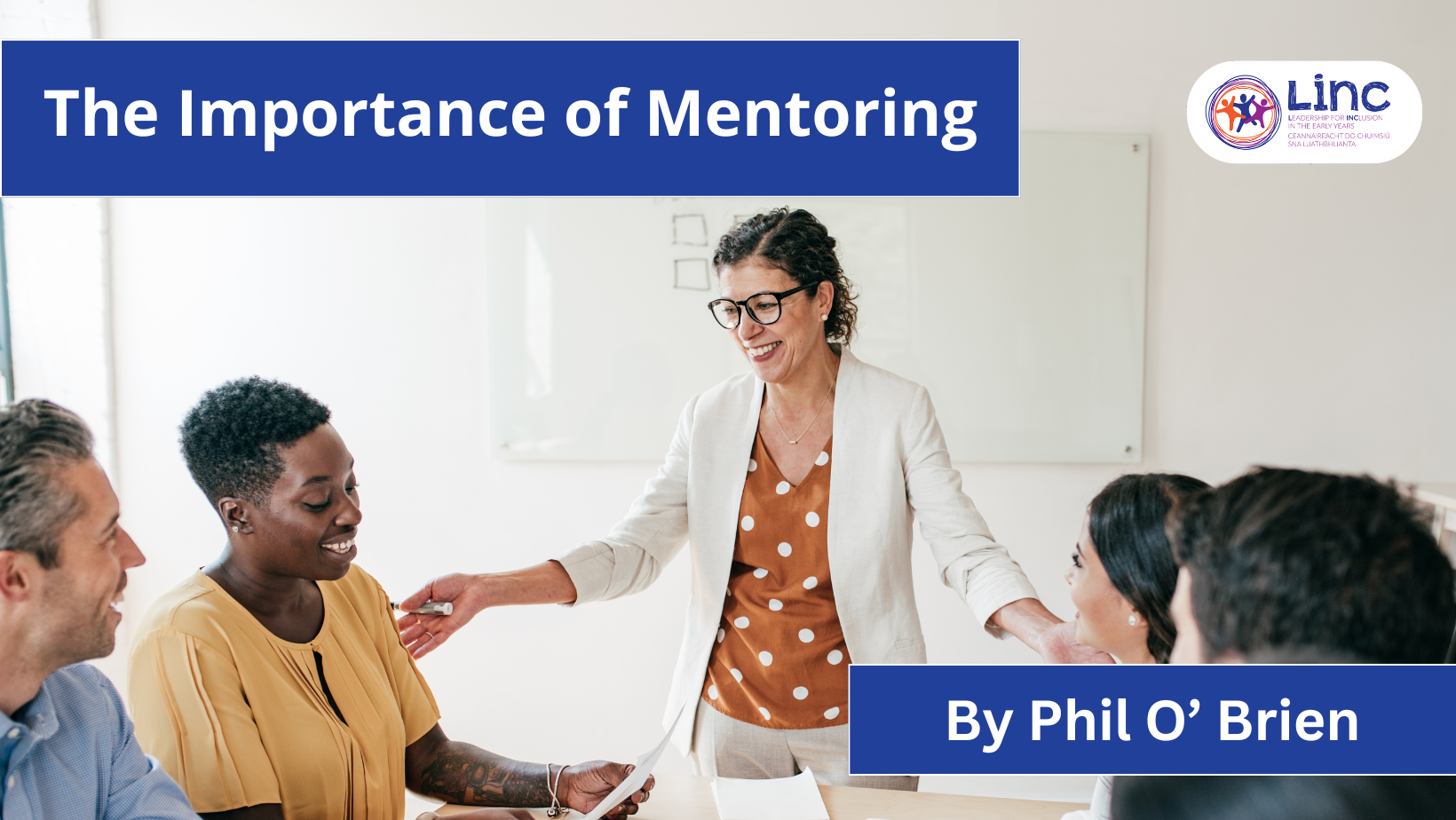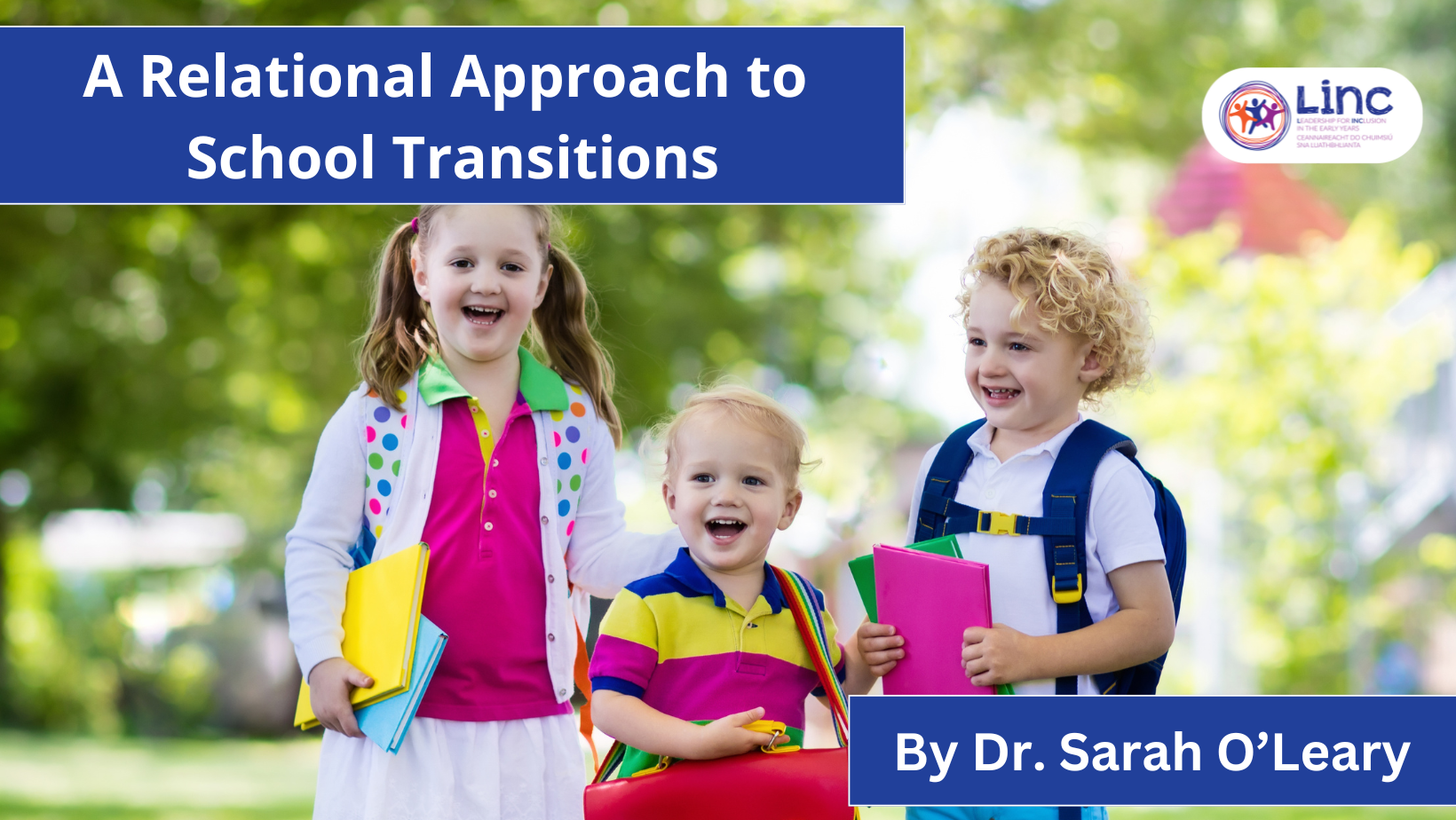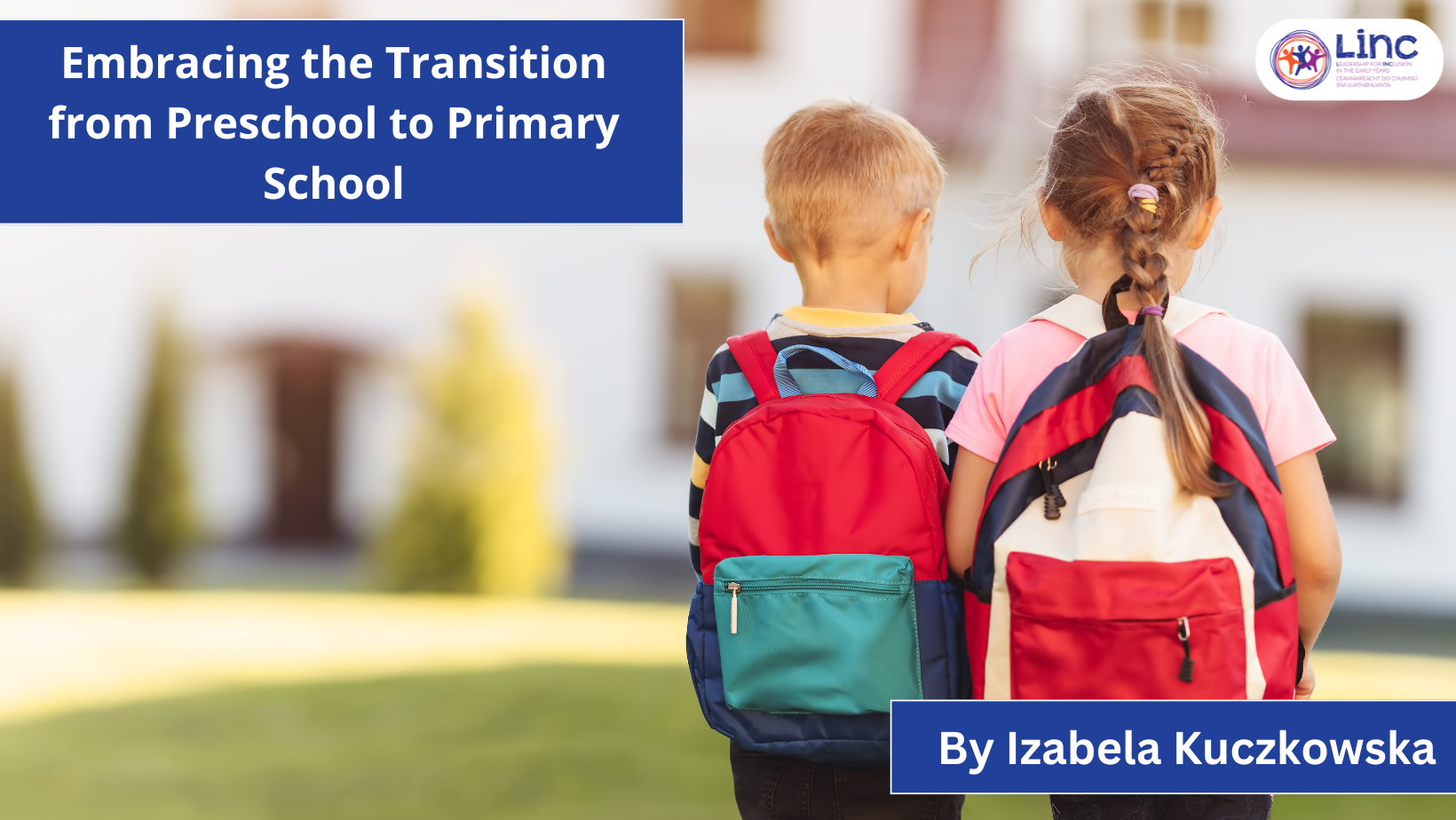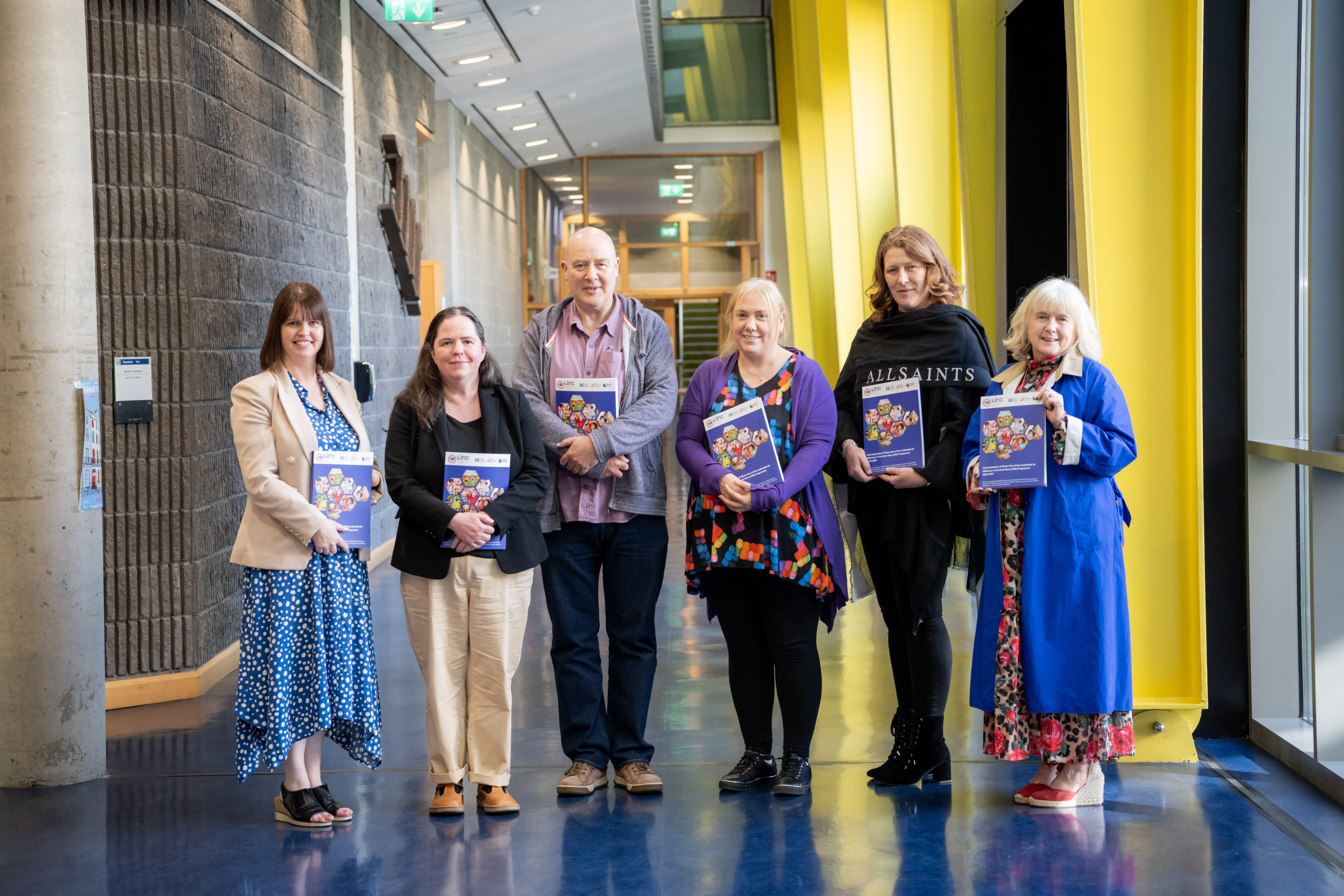The Importance of Mentoring
In this edition of the LINC Blog, Phil O’Brien, Assistant LINC Tutor, explores the transformative role of mentoring in fostering students’ personal and professional growth. Phil shares her approach to mentoring, focusing on creating a trusting and collaborative environment that encourages students to reflect, build confidence, and take positive action in their practice. By nurturing open dialogue and promoting self-belief, she emphasises how mentorship can empower students to make impactful changes in their careers, ultimately benefitting the children and families they serve.

I believe that mentoring is an essential, practical, and effective building block to challenge students and foster their skills. It translates in achieving a standard of high quality that impacts on both personal and professional development. Reflecting on my own skills and approaches has been necessary to enhance my role as a mentor.
My mentoring style is to encourage and support positive and cooperative relationship behaviours. I aim to create a welcoming environment with an informal approach. This helps to establish a connection with the student as a basis to develop a trusting relationship. Such collaboration relies on trust, communication and embraces the philosophy that while we bring our knowledge and expertise as mentors, we too are learners. Lumby (2012) supports this principle that meaningful relationships are based on trust and respect and are fundamental to the success of the mentoring partnership.
As the literature suggests, mentoring is a key leadership strategy with a focus on supporting students to realise their professional potential. In order for this level of scaffolding to be effective, it involves trust and communication and a collaborative support structure (Stanulis & Russell, 1999). The process of review and reflection supports the quality of the relationship and is key to the experience and its success. The mentor is a source of knowledge and expertise, and their support is an invaluable tool in helping students to reflect on and improve their practice.
So, what does this mentoring partnership look like in practice? I believe that the time spent connecting, developing, and nurturing a trusting, respectful and secure relationship are fundamental to the success of the overall mentoring experience. Once I feel a connection is established, it is important to identify where students are at and build on their strengths. I use the art and skill of praise and encouragement at this stage to secure a solid basis for a working relationship. My positive approach appreciates what the student is aiming to achieve, and we reframe it constructively with an opportunity for new thinking and to make improvements in their professional practice.
I love engaging in dialogue and sharing stories as a simple but effective means to tapping into the core motivation of students. This approach is based on the principles of active listening, collaboration and critical reflection focuses on what works and creates an environment for critical thinking and growth. My experience has taught me that posing the right questions explores reality and the options or possibilities are brought to the surface. Students tend to support what they help to create; therefore, they must have a clear understanding of the what, the why and the how. I strongly believe that in my role as a mentor, I have a responsibility to provide guidance, feedback, and support to the student and in doing so creating a culture of accountability.
Mentoring is an important and powerful tool in promoting diversity, equality and inclusion and helping students to navigate change in practical terms that might better meet the needs of the children in their service. I have witnessed how reflective conversations raise awareness and provoke thought processes which translate into taking action.
I have learned that having a bank of well sourced and appropriate resources available to share with the students in a follow up email is invaluable to the process. Students feel more confident and secure in having these resources to bring back to their service to support them in their next step. Armed with these resources and words of encouragement, motivate students as they adapt and make what may possibly be small changes to achieve their goals. Helping to instil a belief in the student that they can make a difference as they share their learning with their colleagues will impact on the children and the families they serve. Support in the development and self-belief that they too can be a leader can be a challenge for some students. However, the most important aspect is the development of a positive attitude and emotional satisfaction to promote future development.
Recently I had one of my students comment “I am not a room leader, and I didn’t think that I could make changes but after this I feel more confident in suggesting small changes that would impact positively on the children in my room”. Another commented “I have fire in my belly to try adapting and making what may only be small changes, but I feel they will make a big difference to some of the more challenged children in my service”.
It has been my absolute honour and privilege to mentor LINC students and to be part of their learning journey. It has been a very rewarding experience, and I am confident in the success and development of our shared learning and the impact it will have on the staff, the children and the families in their individual and collective practices.
References
Lumby , J. (2012) Leading Organisational Culture: Issues of power and Equity. Educational Management Administration & Leadership 40 (6).
Stanulis, R. N. & Russell, D. (1999) “Jumping in”: trust and communication in mentoring student teachers. Teaching and Teacher Education 16 (2000) 65-80.

Phil O'Brien
Assistant LINC Tutor
Phil O’Brien is a committed professional with extensive experience, skills, and competencies in Early Years Care and Education. Over her 28-year career, she has served as an educator, pre-school owner and manager, supervisor, mentor, and tutor, gaining a comprehensive understanding of the sector. Known for her inclusive approach, Phil is particularly passionate about supporting the full participation of all children in Early Years settings. With a strong work ethic, confidence in her abilities, and effective communication skills, she engages with students and collaborates well within a team environment.
You may also like:

A Relational Approach to School Transitions
A Relational Approach to School Transitions In this edition of the LINC Blog, Assistant LINC Tutor & Researcher/Lecturer in Inclusion Education, Dr. Sarah O'Leary explores the critical role of relational pedagogy in easing children's transition to primary...

Embracing the Transition from Preschool to Primary School
Embracing the Transition from Preschool to Primary School In this edition of the LINC blog, Izabela Kuczkowska, a LINC Graduate, delves into the poignant journey of children transitioning from preschool to primary school. Through her narrative, she unveils the...

Empowering Inclusive Practice through Continuing Professional Learning: The LINC Programme Evaluation Report highlights the positive role of the Inclusion Coordinator
Empowering Inclusive Practice through Continuing Professional Learning: The LINC Programme Evaluation Report highlights the positive role of the Inclusion CoordinatorThe Leadership for Inclusion in the Early Years (LINC) Programme Consortium, comprising Mary...
